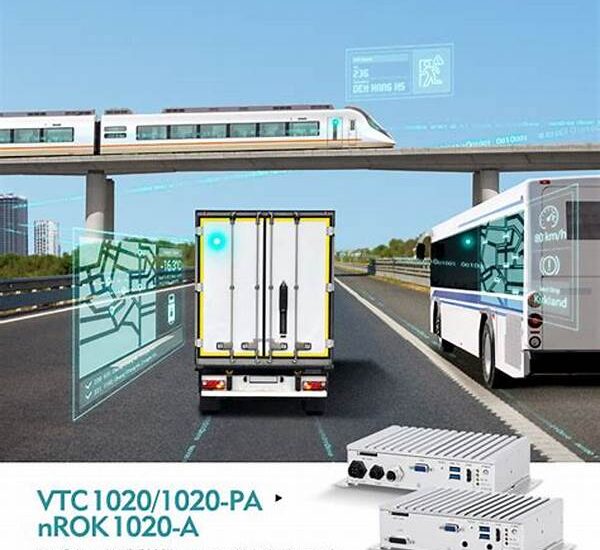
Fuel Efficiency Telematics Applications
In today’s fast-paced world, where environmental consciousness and economic efficiency are at the forefront, embracing technology that drives sustainable practices is not just an option, but a necessity. Fuel efficiency telematics applications represent a revolutionary solution for businesses and individuals alike seeking to reduce their carbon footprint while optimizing operational efficiency. Imagine the potential savings and environmental benefits when every vehicle on the road is equipped with systems that meticulously monitor and manage fuel consumption. Not only do these applications promise a cleaner planet, but they also embody substantial cost-cutting potential, making them a smart investment for forward-thinking entities.
Read Now : Immediate Car Maintenance And Repairs
The Science Behind Fuel Efficiency Telematics Applications
Fuel efficiency telematics applications harness cutting-edge technology to provide real-time data and insights, enabling users to make informed decisions about vehicle operations. These systems capture a wealth of information, from speed and braking patterns to engine diagnostics and routing data, all crucial for understanding and improving fuel efficiency. By leveraging such insights, fleet managers can significantly cut down on fuel wastage, thereby reducing operational costs and environmental impact. With the ability to track and analyze these metrics, businesses can efficiently adapt strategies to maximize fuel savings while minimizing their carbon footprint, exemplifying a blend of financial prudence and ecological responsibility.
Benefits of Adopting Fuel Efficiency Telematics Applications
1. Cost Savings: By optimizing driving behavior and maintenance schedules through fuel efficiency telematics applications, organizations can achieve notable savings on fuel expenditure.
2. Environmental Impact: Reduced fuel consumption leads to fewer emissions, supporting global efforts to combat climate change.
3. Enhanced Performance: Real-time data insights enable the fine-tuning of vehicle performance, leading to more efficient operations.
4. Predictive Maintenance: Early identification of potential vehicle issues prevents costly repairs and downtime.
5. Strategic Planning: Comprehensive data supports more informed, strategic decision-making processes for fleet management.
Real-world Impact of Fuel Efficiency Telematics Applications
Fuel efficiency telematics applications are not just theoretical constructs; they have already shown substantial impact in real-world scenarios. Companies that have adopted these systems report consistent reductions in fuel usage and maintenance costs. This real-time ability to monitor fleet performance and identify inefficiencies translates into tangible financial gains. Furthermore, organizations enhance their brand image by showcasing a commitment to sustainability, attracting environmentally conscious clients. By adopting fuel efficiency telematics applications, businesses demonstrate that they are not only concerned about their bottom line but are also proactive in their environmental stewardship.
Read Now : Heat Dissipation In Car Engines
Understanding the Mechanisms of Fuel Efficiency Telematics Applications
Fuel efficiency telematics applications operate by integrating advanced GPS and onboard diagnostic technologies, allowing for comprehensive tracking of vehicle performance. Continuous data collection facilitates in-depth analysis of driving habits and fuel consumption patterns, proving indispensable for crafting effective fuel-saving strategies. These applications not only offer operational oversight but also empower drivers by providing feedback on their driving habits, encouraging them to adopt more fuel-efficient practices. The dual approach of management and education instills a culture of sustainability and efficiency within organizations, aligning daily operations with larger environmental goals.
The Future of Fuel Efficiency Telematics Applications
As technology advances, the scope and accuracy of fuel efficiency telematics applications will continue to expand. Upcoming iterations promise further integration with smart city infrastructure and enhanced AI-driven analytics, providing even more precise data and predictive capabilities. These advancements will further bolster the efficacy of telematics systems, cementing their role as essential tools for modern fleet management. By investing in these technologies now, businesses not only future-proof their operations but also contribute to a sustainable future. Fuel efficiency telematics applications symbolize a pivotal step toward a world where technology and ecology advance hand in hand, promising a cleaner, more efficient tomorrow.
The Critical Role of Fuel Efficiency Telematics Applications in Modern Fleet Management
In the ever-evolving realm of fleet management, fuel efficiency telematics applications have become indispensable assets. They offer unparalleled insights, allowing managers to optimize routes, minimize idle times, and ensure that every vehicle operates at peak efficiency. Beyond just fuel savings, these applications provide the necessary data to drive comprehensive operational improvements. By integrating these applications, companies can achieve significant advantages over their competitors, both economically and environmentally. A commitment to adopting such technologies highlights a company’s dedication to innovative and responsible business practices.
Conclusion: The Persuasive Case for Fuel Efficiency Telematics Applications
The case for fuel efficiency telematics applications is compelling and clear: they represent an intersection where economic benefits meet environmental stewardship. Businesses that embrace these technologies stand to reap significant rewards in cost savings, operational efficiency, and corporate responsibility. As the demand for sustainable practices grows, those who invest in fuel efficiency telematics applications will not only enjoy immediate benefits but also position themselves as leaders in their industry. By championing these applications, organizations can take meaningful strides toward a sustainable future, harnessing the power of technology to enact positive change. In a world where every action counts, adopting fuel efficiency telematics applications is more than a choice—it’s an imperative.